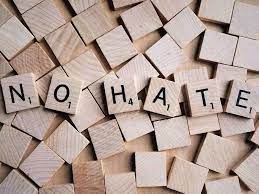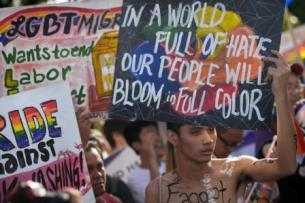Today,on the 18th of June, is the very first ‘global’ day dedicated to ‘Countering Hate Speech’.
According to the UN, hate speech is any kind of speech or writing that attacks or discriminates against a person or a group based on religion, ethnicity, nationality, race, color, descent, gender, or any other identity factor. Speech should not be a weapon for creating more mayhem in this volatile world; thus, the International Day for Countering Hate Speech will help to stop hate-mongering.
So, the U.N. General Assembly adopted the resolution to counter hate speech and set up this milestone in the fight against hate speech.
Dear reader, please note: it’s not a passive observance of ‘no hate’ or ‘no discrimination’. It’s not a day dedicated to ‘don’t spread hate speech’. It’s a day, that reminds us to do something: to call out to those who are spreading hate, to desist!
As we have observed, the sheer volume of hate that is being spewed out on TV channels and on social media is overwhelming. Yet, this hate that instigates people to distrust, violence and even more hate, didn’t happen yesterday.
Hate speech is the result of dehumanization: a process that begins when we start treating people less than human.
It started in our homes in the ‘old days’ when we put aside separate, old plates and chipped cups for the household help to eat in. After all, they were uneducated tribal people. Even though we ‘loved’ our faithful servants, we sat on chairs while they squatted on the ground. I will not mention what we would do if these ‘faithful servants’ were caught trying out the chairs or sitting at the dining table! No matter how ‘simple’ these ‘servants’ were, they never could be fully trusted, we told our kids. We were amused when one of them enrolled their daughter in a missionary school. And in a fit of indulgence perhaps gave her some clothes and books as hand-me-downs. And some of us were shocked and horrified when we found out that the now grown up son of our old maidservant wasn’t pulling a rickshaw, but had actually been elected as a village headman.
The ‘othering’ and the hate speech starts small. The first suspect when a ‘valuable’ goes missing is the servant.
‘These tribals can never be trusted.’ “Be careful, your daughter is growing up and that man-servant of yours is a Muslim”. ” Those Anglo-Indian girls wears skirts, our innocent boys are led astray.” “That Naga guy may be good looking but he’s dog-eater.” “That boy behaves like a girl, he’s a disgrace to our community!” “It would have been better for that gay boy to have died at birth!”
Hate speech incites violence and undermines social cohesion and tolerance. The devastating effect of hatred is sadly nothing new. However, its scale and impact are nowadays amplified by new technologies of communication, to the point that hate speech has become one of the most frequent methods for spreading divisive rhetoric and ideologies on a global scale and threatening peace.
Hate speech also grows when religious leaders, priests and mullah’s preach exclusionist sermons to their congregations about the ‘purity’ of their religious creeds. These statements are carried home by their followers and relayed to their family and children. ‘Homosexuality is a sin and so God never tolerates homosexuals’. “Allowing a man to have four wives is total depravity.” “We must stand strongly against inter-caste marriages” “Girls who meet with boys in public are a dishonour to the family and the community”.
So how can I actually counter hate speech? Well, I will start treating all my fellow human beings with compassion, respect and dignity. I will read the Indian Penal Code (IPC) and the Constitution and educate others.
For example, “Section 295A of the IPC defines and prescribes a punishment for deliberate and malicious acts, intended to outrage religious feelings of any class by insulting its religion or religious beliefs. IPC Section 504 says that whoever intentionally insults, and thereby gives provocation to any person, intending or knowing it to be likely that such provocation will cause him to break the public peace, or to commit any other offence, shall be punished.”
The Internet and social media have turbocharged hate speech, enabling it to spread like wildfire across borders. The spread of hate speech against minorities during the COVID-19 pandemic provides further evidence that many societies are highly vulnerable to the stigma, discrimination and conspiracies it promotes.
So, Writer Cedric Prakash has suggested 7 things we can do. I’ll leave it to you to read and understand.
1. Build harmony and solidarity at every level from grassroots to international within a framework of justice
2. Strive to safeguard fundamental constitutional rights and freedoms and resist draconian laws and measures
3. Educate ourselves about syncretic pluralistic cultures, traditions and sub-altern histories country-wide
4. Build upon these traditions to strengthen fraternity within and across communities’ country-wide
5. Stem all ideological attempts to dilute or replace our constitution
6. Seek justice for victims of communal, casteist, homophobic and misogynist hatred and discrimination
7. Be alive to India’s heritage of casteism and patriarchy in order to strengthen our democratic ethos within 8. Comprehend and support ‘Not in My Name’ campaigns and all local resistance against fascism.”



